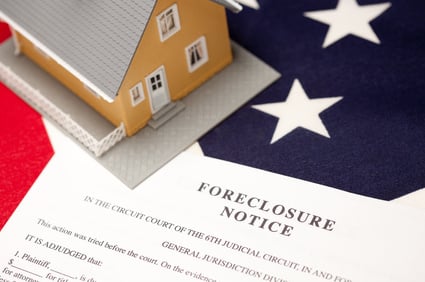California Governor Jerry Brown has just signed into law the Homeowner Bill of Rights. This is national groundbreaking legislation that limit's a lender's ability to file and proceed with a foreclosure action against a homeowner so long as certain conditions have been met.

© Andy Dean ' Fotolia.com
The new law will generally prohibit lenders from engaging in dual tracking, require a single point of contact for borrowers seeking foreclosure prevention alternatives, provide borrowers with certain safeguards during the foreclosure process, and provide borrowers with the right to sue lenders for material violations of this law.
Here are some highlights of the law:
- Who it protects. The law will go into effect January 1, 2013 and regulates first trust deeds secured by owner-occupied properties with one-to-four residential units. To qualify a borrower must be a natural person (not a corporation, trust or other legal entity) and must potentially be eligible for a foreclosure prevention assistance program offered by the lender. It does not protect people who have filed bankruptcy, did a deed-in-lieu, or working with an outside foreclosure defense company or attorney.
- Dual tracking during a Short Sale prohibited. What this means is a lender who has agreed to to allow a borrower to enter into a short sale and all parties to the transaction have also agreed to it (second mortgage holders, mortgage insurer, etc), and a buyer has been found who has provided proof of funds to complete the short sale transaction, then the lender can not simultaneously proceed with a foreclosure action while the short sale is pending. This prevents lenders from dragging out the short sale process in order to get their foreclosure actions ready to implement the second the short sale falls through. A lender must also cancel or rescind any pending trustee's sale during this time.
- One point of contact for the borrower. This provision alone is worth the entire weight of the legislation. Any borrower who has been in default and tried to work out an arrangement with their lender will tell you one of the biggest problem's is being shuffled around for person to person and department to department depending on what day of the week you happen to call your lender. You almost can never talk to the same person two times in a row. The new law states the mortgage servicer must, upon a borrower requesting a foreclosure prevention alternative, promptly establish and provide a direct means of communication with a single point of contact. The single point of contact must remain assigned to the borrower's account until all loss mitigation options offered by the mortgage servicer are exhausted or the borrower's account becomes current.
Other key points:
- No Dual Tracking During Loan Modification: A mortgage servicer generally cannot record a notice of default, notice of sale, or conduct a trustee's sale for a nonjudicial foreclosure if the borrower's complete application for a first lien loan modification is pending as specified, or if a borrower is in compliance with the terms of a written trial or permanent loan modification, forbearance, or repayment plan.
- No Late Fees or Application Fees: A mortgage servicer cannot collect any late fees while a complete first lien loan modification application is under consideration, a denial is being appealed, the borrower is making timely modification payments, or a foreclosure prevention alternative is being evaluated or exercised.
- Additional Loan Modification Safeguards: A mortgage servicer must provide written acknowledgment of receipt within five business days of a borrower's submission of a complete first lien modification application or any document in connection with a first lien modification application.
- Lender Required to Review Foreclosure Documents: No entity can record a notice of default or otherwise initiate the foreclosure process, except for the holder of the beneficial interest under the deed of trust, an authorized designated agent of the holder of the beneficial interest, or the original or substituted trustee under the deed of trust. Furthermore, a mortgage servicer must ensure that certain foreclosure documents are accurate and complete, and supported by competent and reliable evidence. (This is in direct response to the robo-signing litigation that shook the foreclosure industry).
- Notifying Borrower Before NOD: A mortgage servicer cannot record a notice of default for a nonjudicial foreclosure until the mortgage servicer informs the borrower of the borrower's right to: (1) request copies of the promissory note, deed of trust, payment history, and assignment of loan if any to demonstrate the mortgage servicer's right to foreclose.
- Postponing a Trustee's Sale: Whenever a trustee's sale is postponed for at least 10 business days, the lender or authorized agent must provide written notice of the new sale date and time to the borrower within five business days after the postponement.
California has always been one of the more liberal states when it comes to the protection of a consumers rights so it is not out of character for the legislature there to be the first to pass this type of legislation. The really interesting thing to watch over the next several months is how many other States copy it in one form or another or if one of the Presidential candidates decides to make it talking point leading up to the election in November.
0 komentar:
Posting Komentar